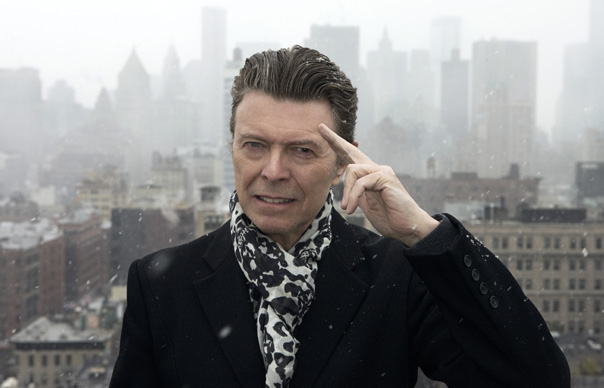The film David Bowie: The Last Five Years screens at 9pm on BBC2 tomorrow night [January 7] – the day before what would have been the singer’s 70th birthday.
This is the follow-up from the BBC’s previous Bowie documentary, David Bowie: Five Years, which was broadcast in 2013 and focused on the years between 1971 and 1983. Here, filmmaker Francis Whatley – who directed both films – tells us what we can expect from his latest documentary and also about his own long relationship with David Bowie.
Follow me on Twitter @MichaelBonner
When did you first meet Bowie?
The BBC ran these short films, before Newsnight, about two minutes long. I was given a set of ones about modern British sculpture which I thought was a hard call. I didn’t know quite what to do. I was young and green, so I said to my boss ‘Who should I ask..’ they wanted them all celebrity driven. He said, “Write to your heroes.” So I wrote to David Bowie. It was before the days of emails, so I must have sent him a fax or a letter. He phoned me immediately and said, ‘I’d love to do this, Francis.’ I offered him a choice of artwork and he picked something called Sacred, which was a stone slab in a wood in Wiltshire by a man called Richard Devereux which had the word ‘Sacred’ written on it. I went down there and got up very, very early in the morning and filmed this piece of stone from every angle possible and he put some music on it and wrote this piece on it, and it was rather poetic and rather beautiful. That was how the relationship started.
When was this?
Mid-1990s, I guess. Around that time he phoned me quite often. It was at the height of his modern painters art loving period. Because I’d worked in the art world before I joined television, and because I was interested in modern British art, we talked about that sort of thing. Then we did an Omnibus film together on Stanley Spencer. We were going to do this big art project for the BBC and it fell through, unfortunately. But we remained in touch, right up to the very end. I got an email from him November last year. The BBC had announced these massive redundancies and he wrote me a note saying, if the BBC had any sense they’d keep me for life. It was a very nice note from someone who was very, very ill. So that was how I knew him and we remained in touch, just swapping books and plays we’d seen or whatever.
A very informal relationship, outside of his normal area of business?
Yes. He knew I was a fan but we didn’t talk about music. I think that’s what kept the relationship going the way it did, because he knew I didn’t want anything from him. I think those people were probably quite rare in his life. He knew I was making the first film. But he didn’t contribute. But he was very happy with the result and wrote to me as soon as it came out. He had wanted a copy in advance, or his management wanted a copy in advance. But I said no that’s not possible because of the way the BBC works, we’re not allowed to do that. So I made sure he had a copy delivered to his flat, so that he had one at the same time in New York that the British would have been watching it on TV. He was very pleased and wrote to me immediately to say how proud he was of me and of the film. Which was very nice and very touching because I didn’t make it for anyone really. I made it for the audience, obviously, but it wasn’t there to serve the record company or anyone else. I tried hard to avoid hagiography; but it is hard to avoid the brilliance of that man.



